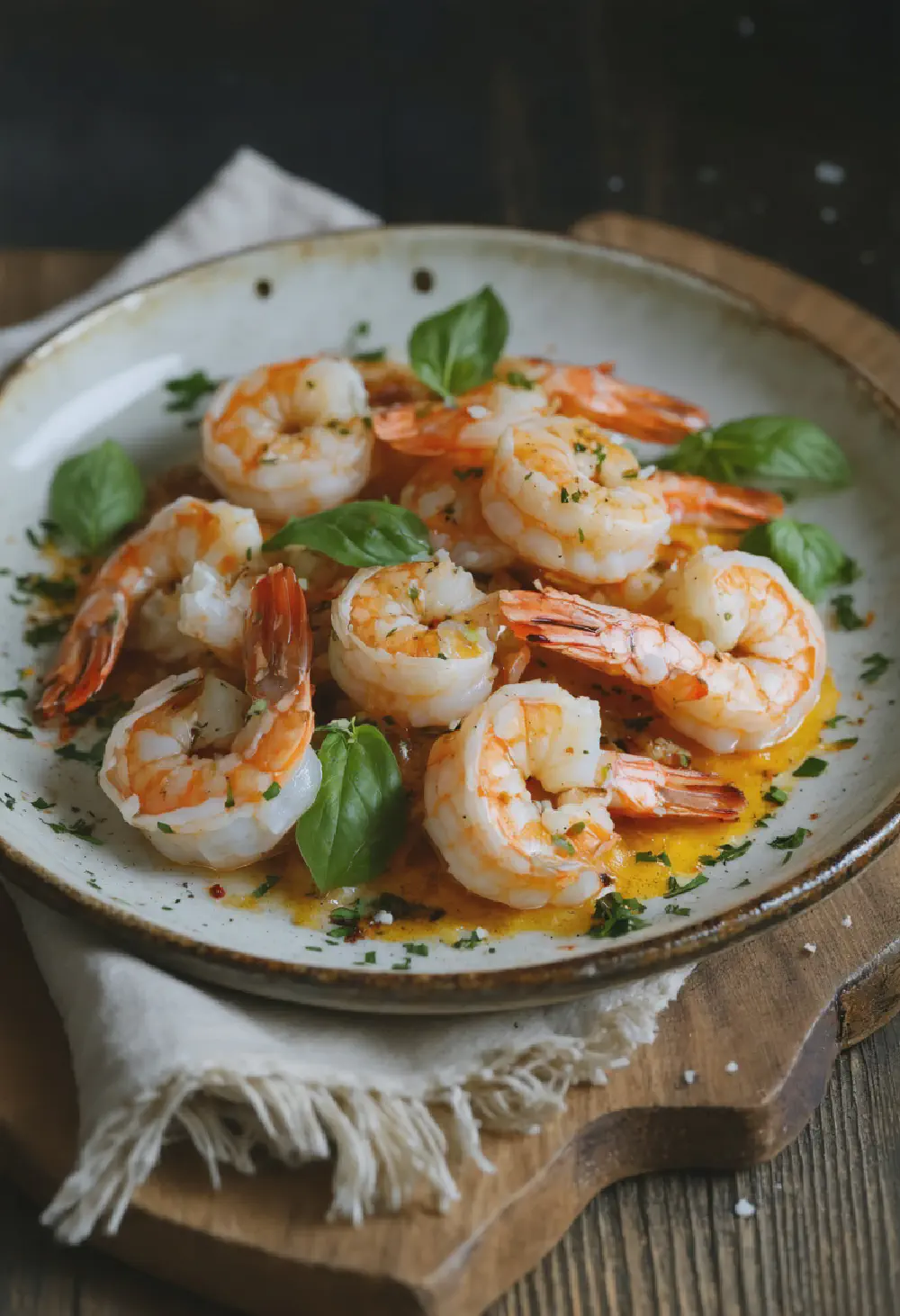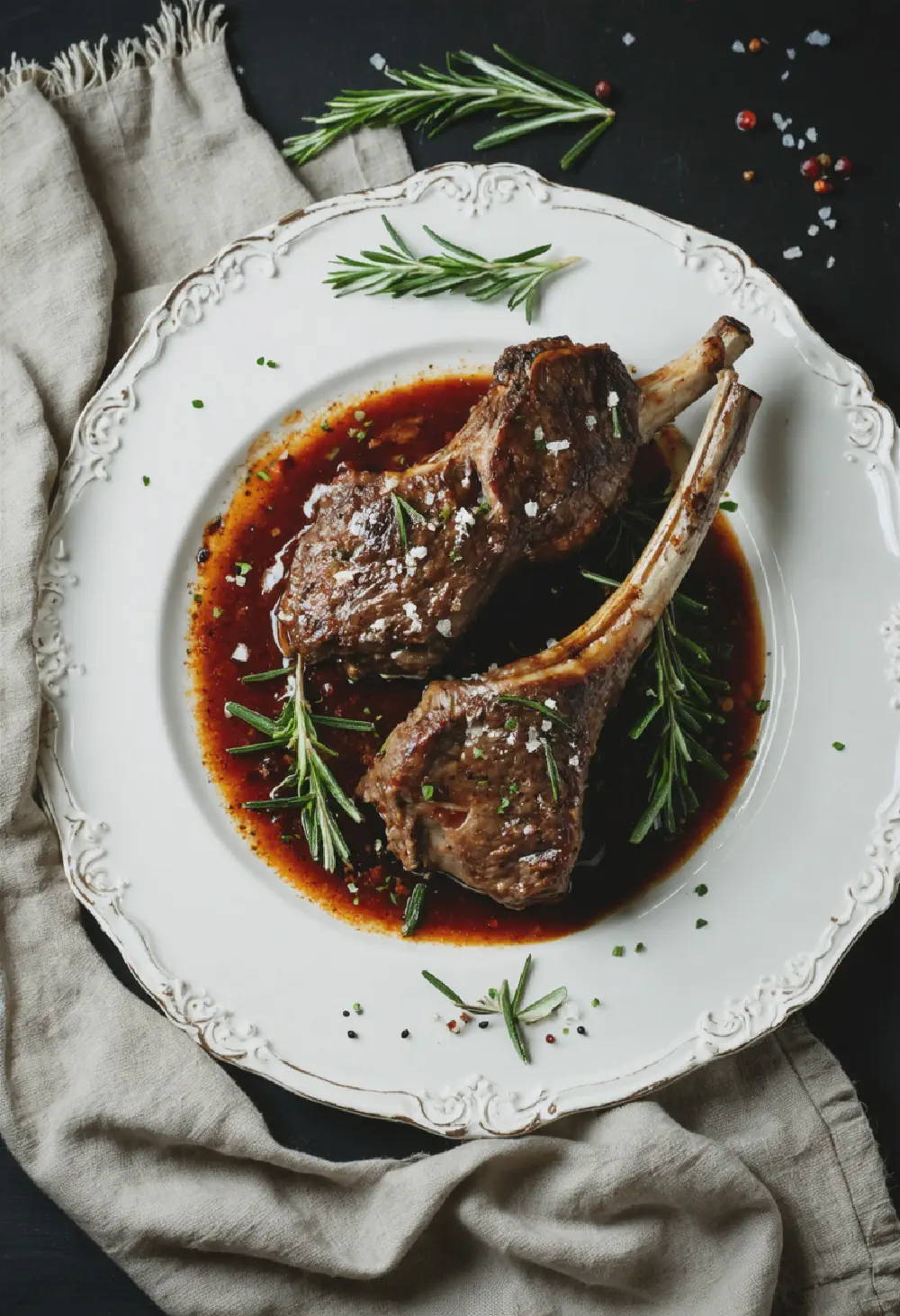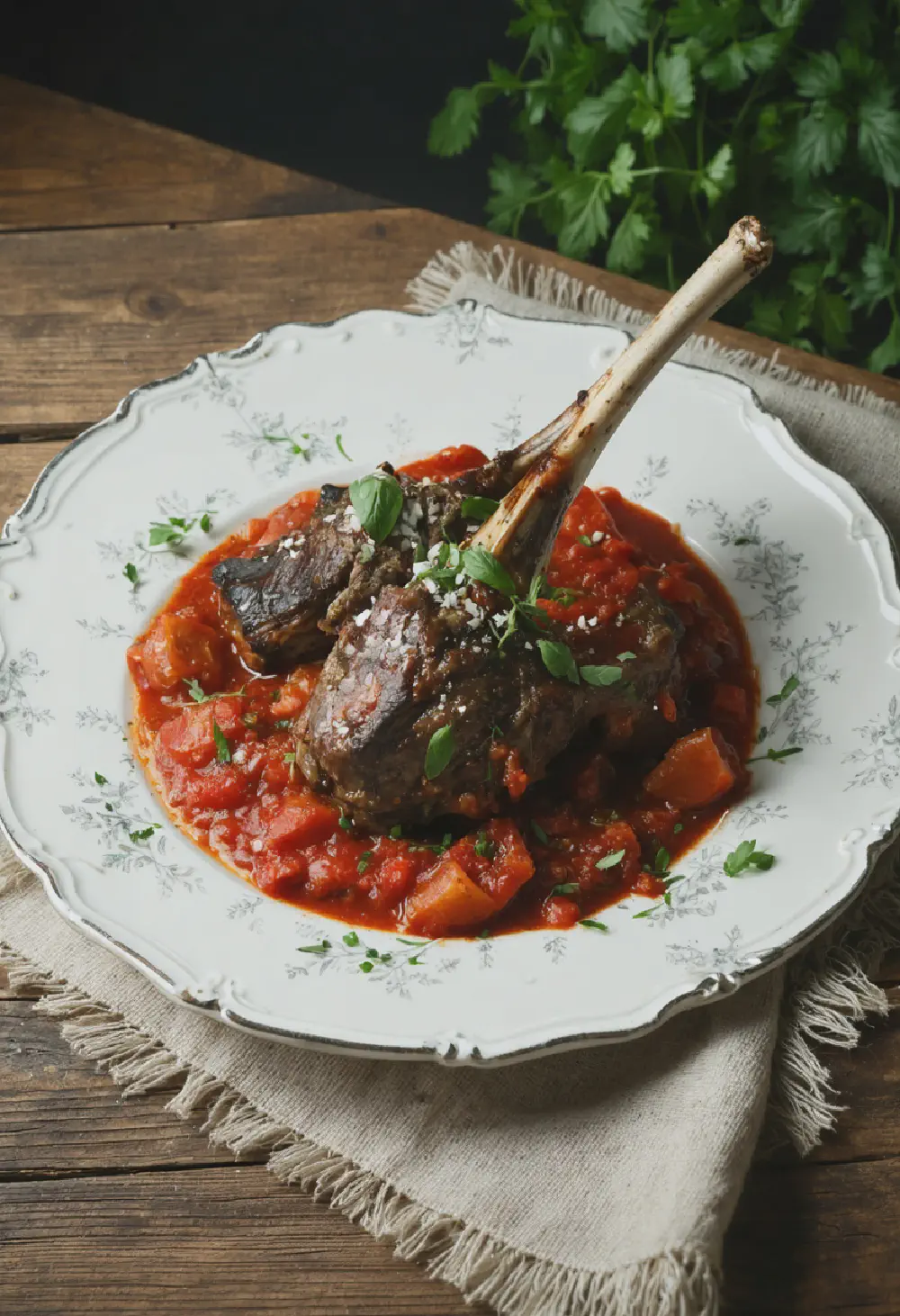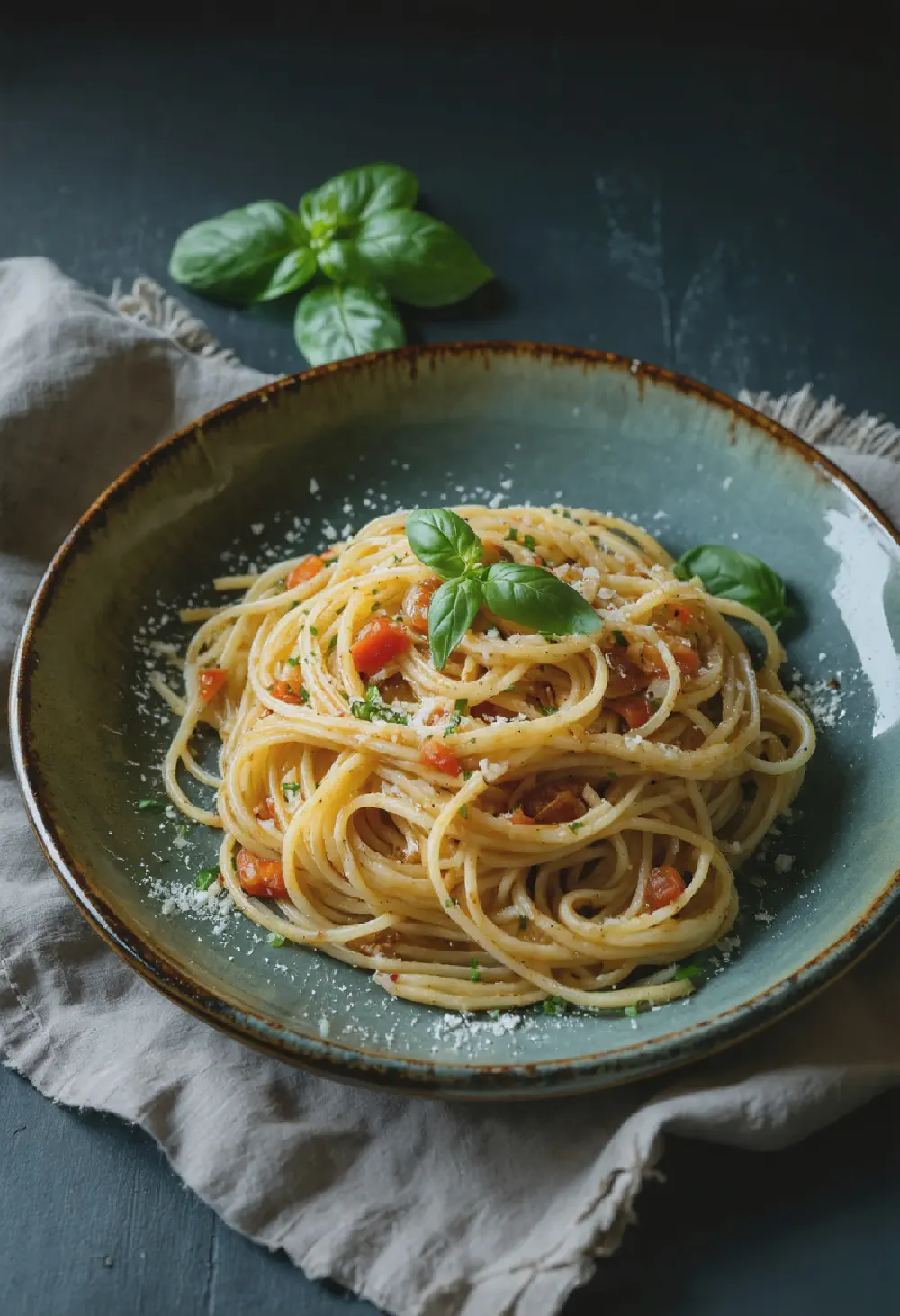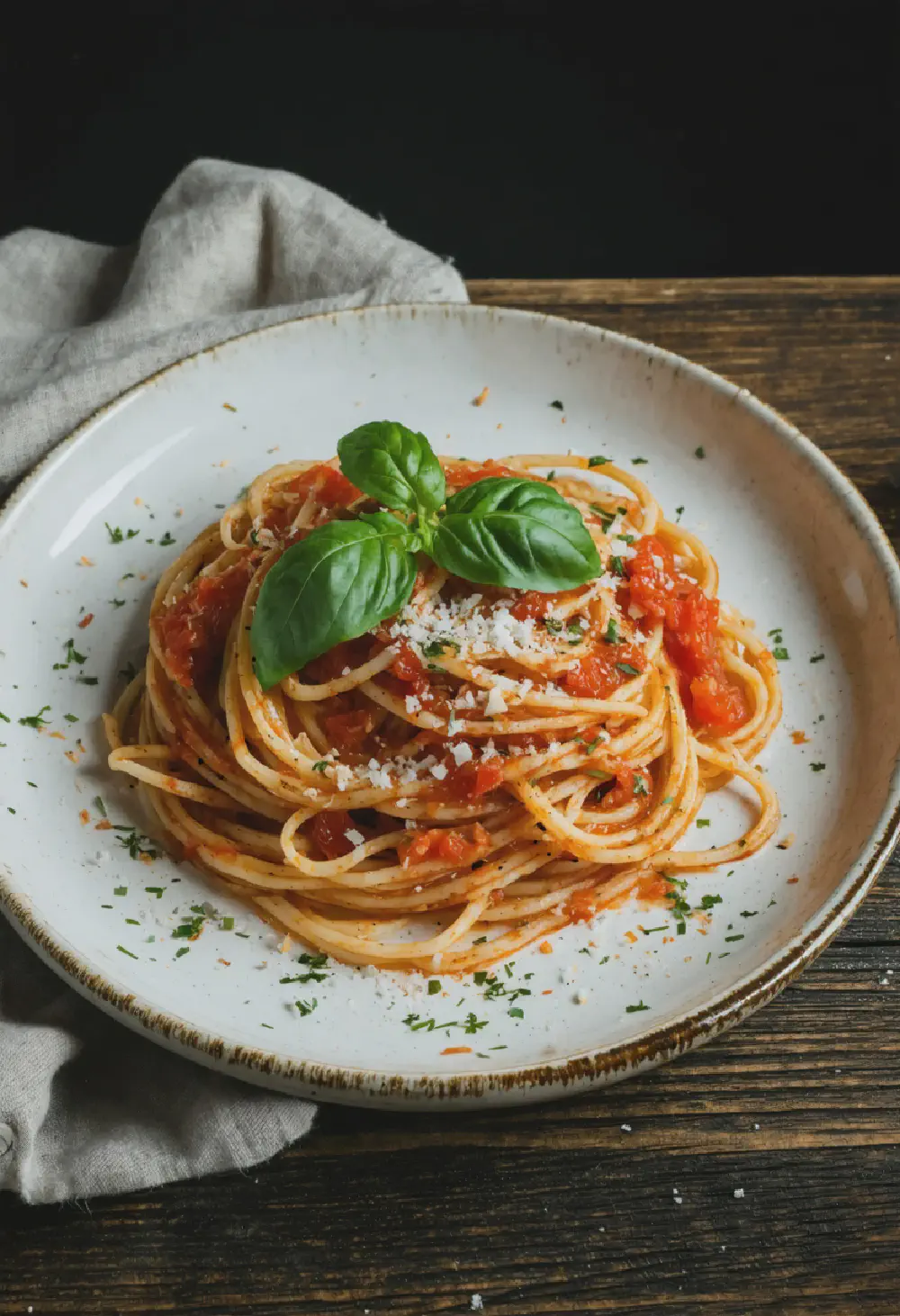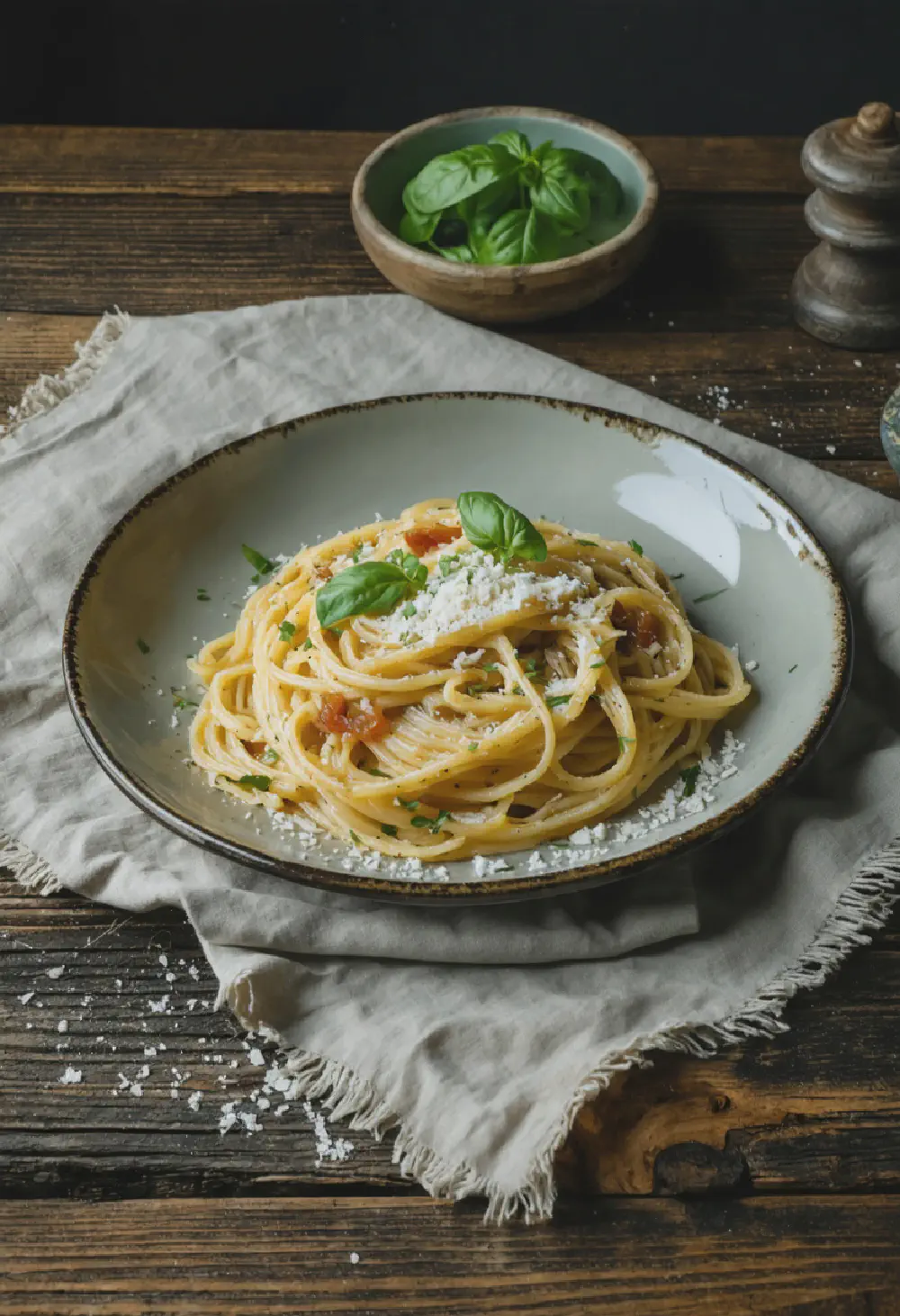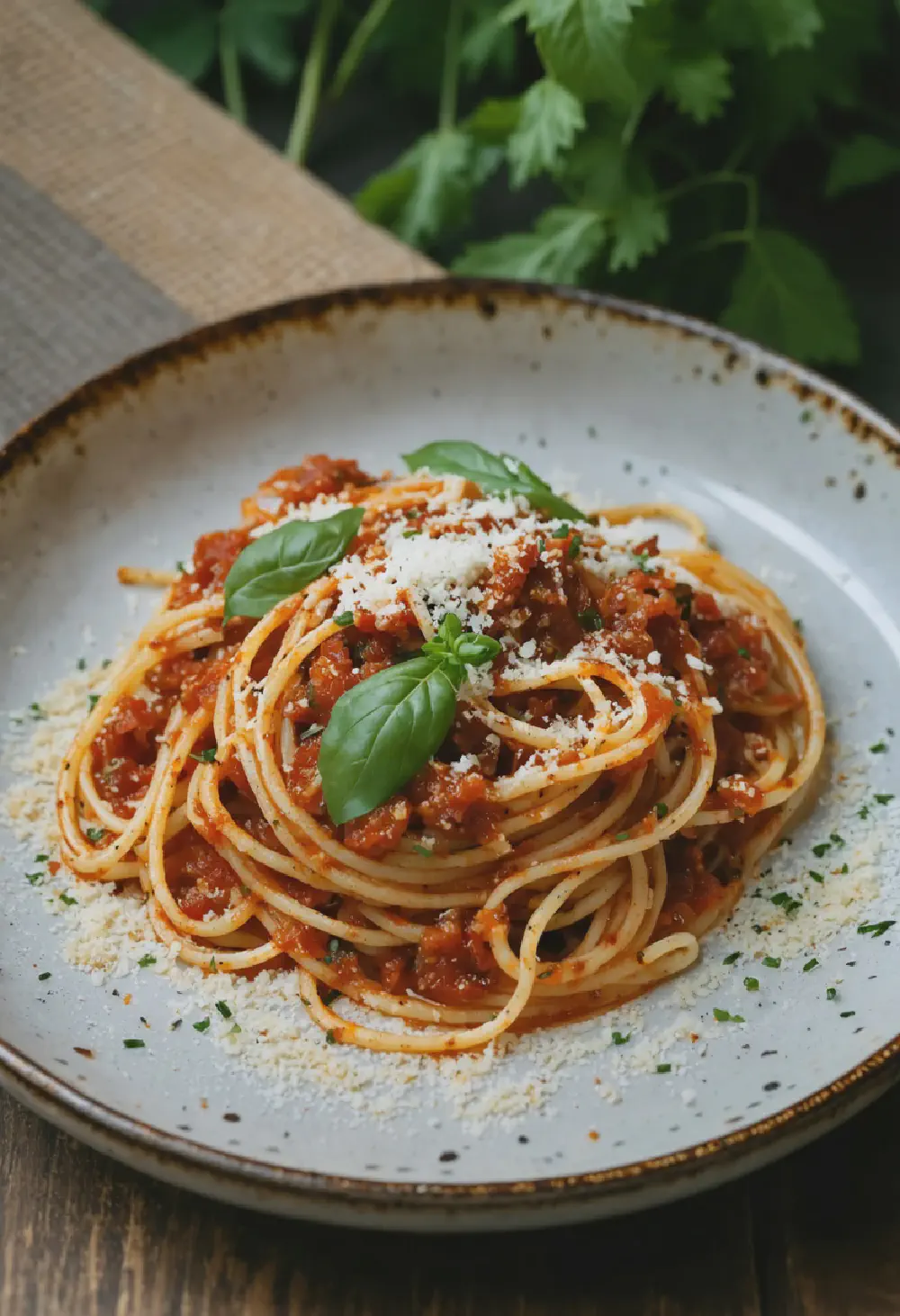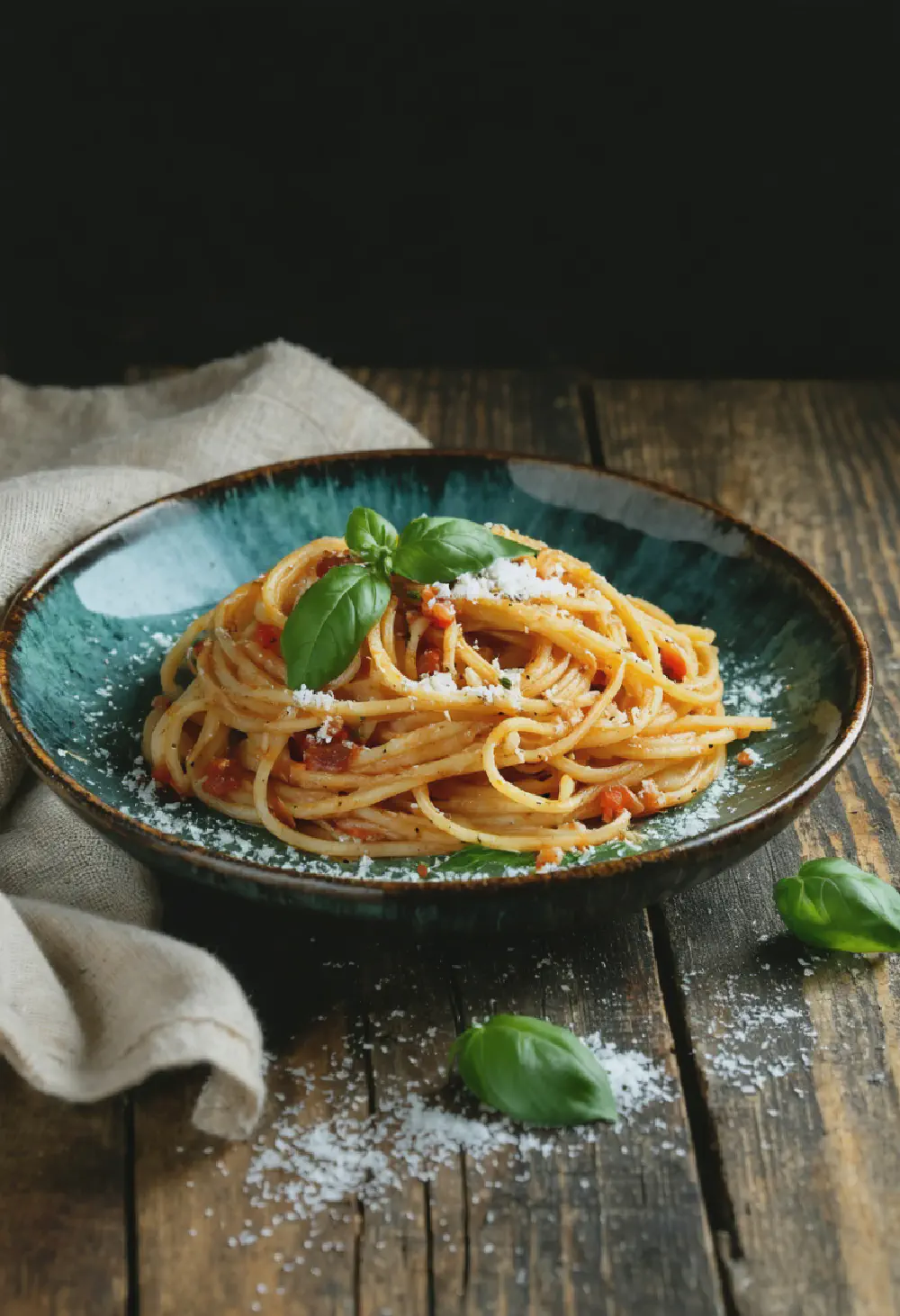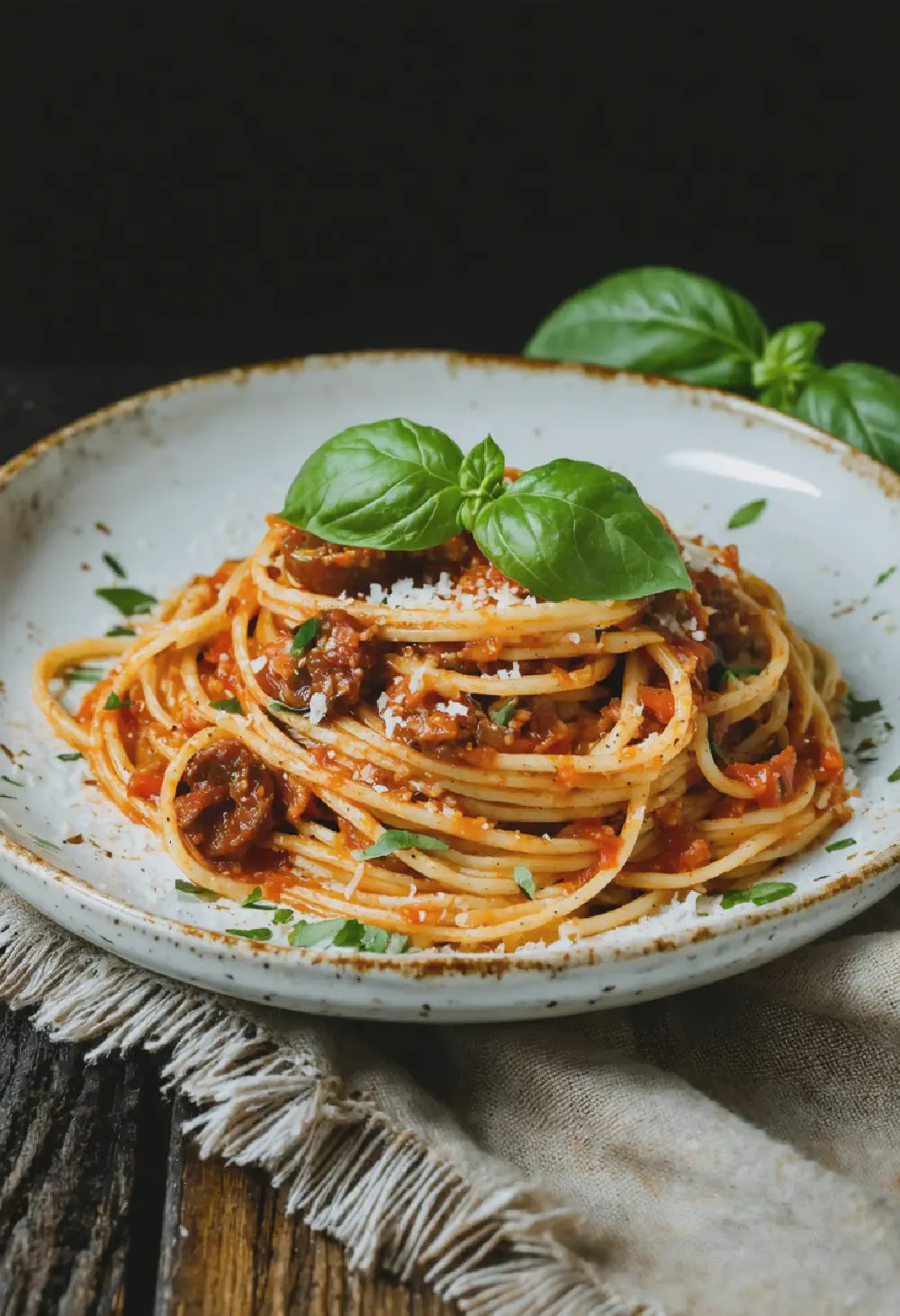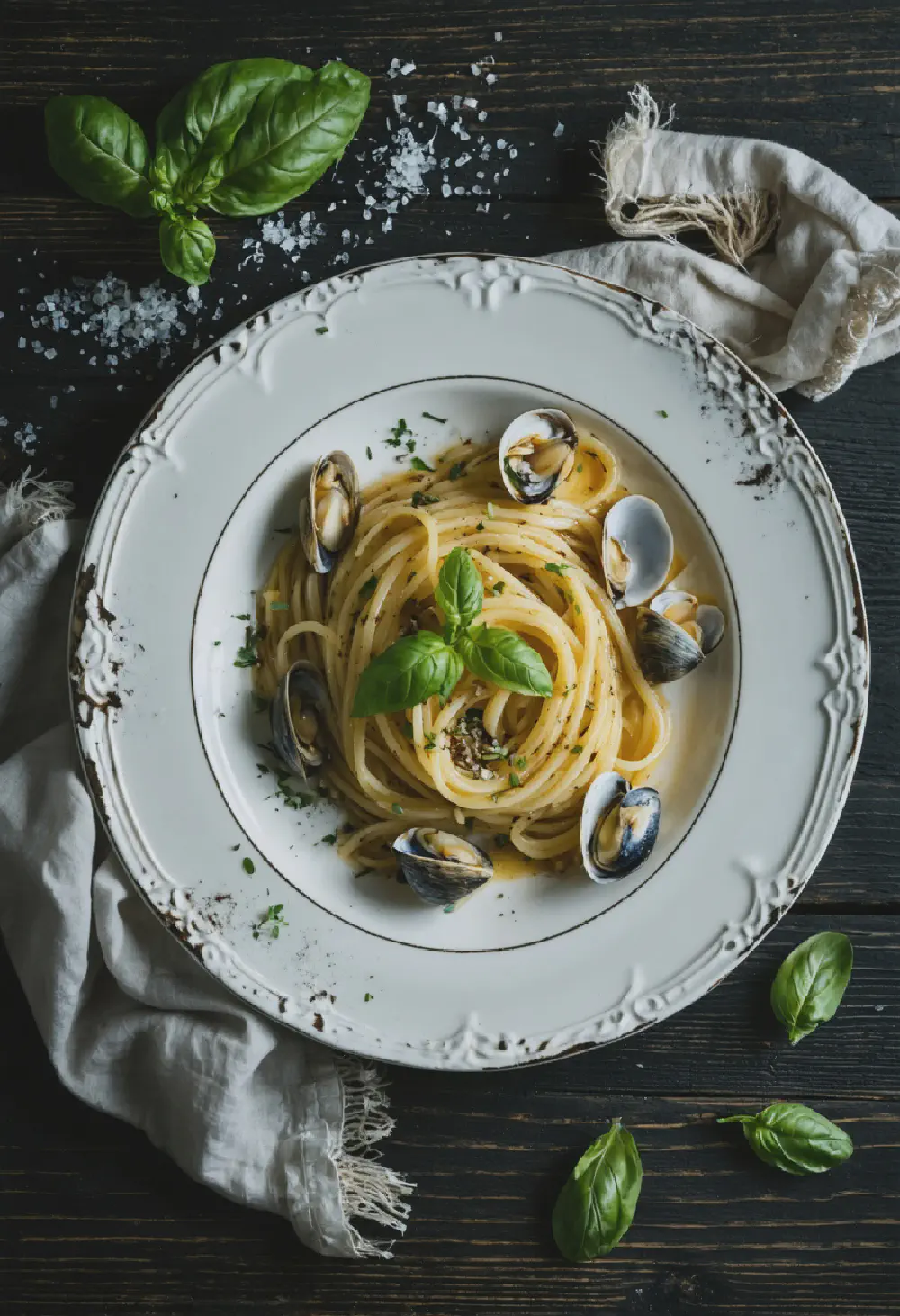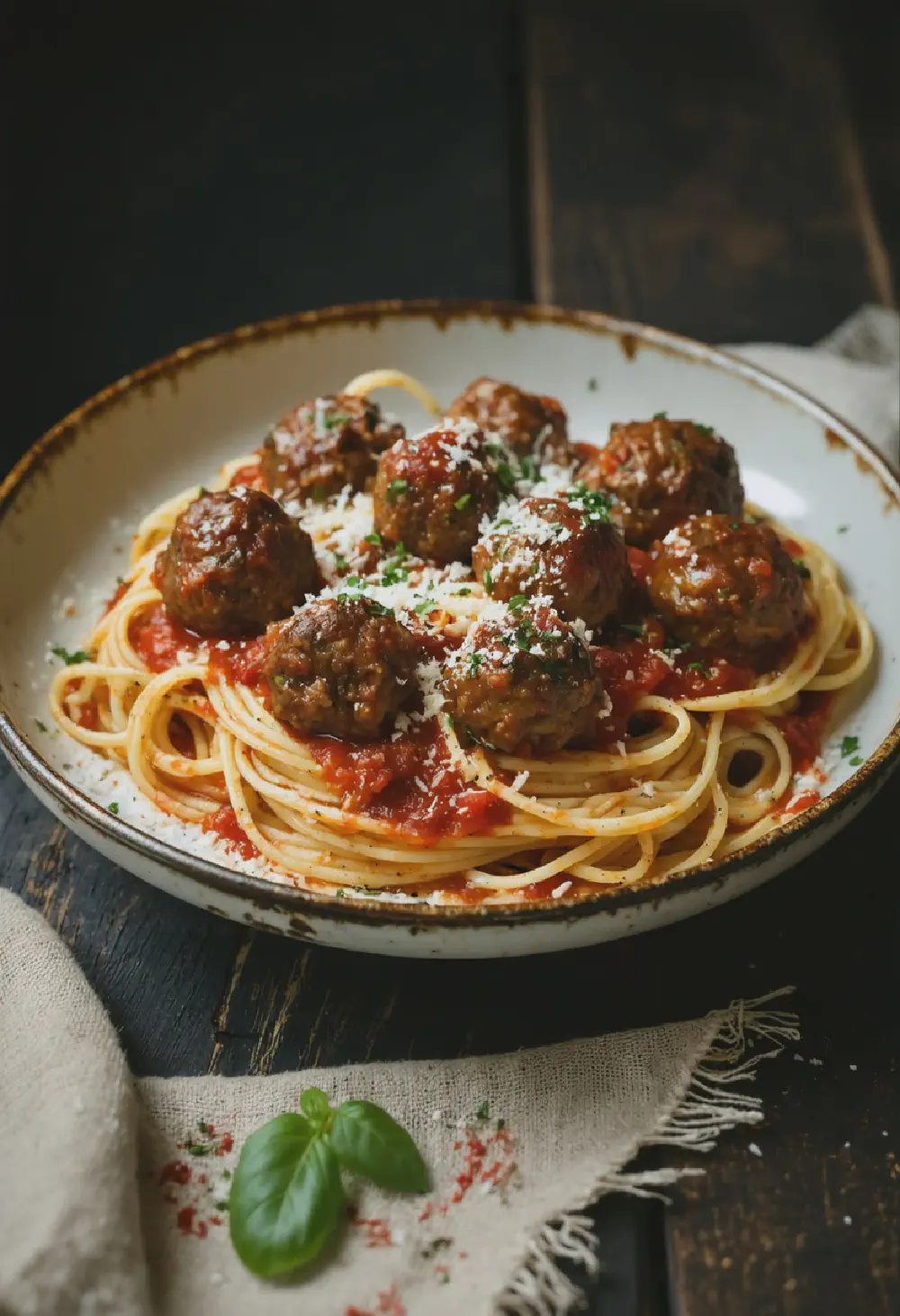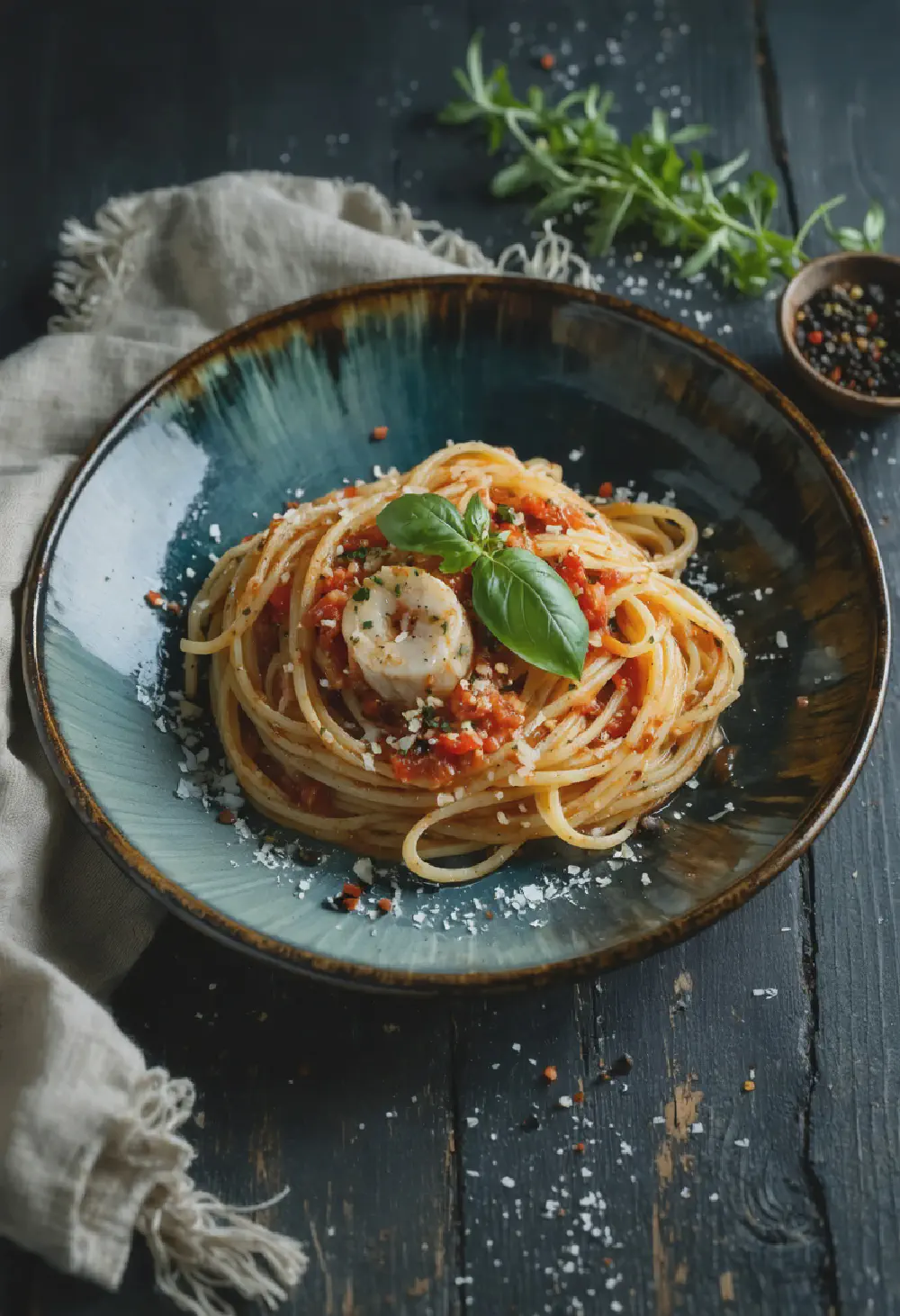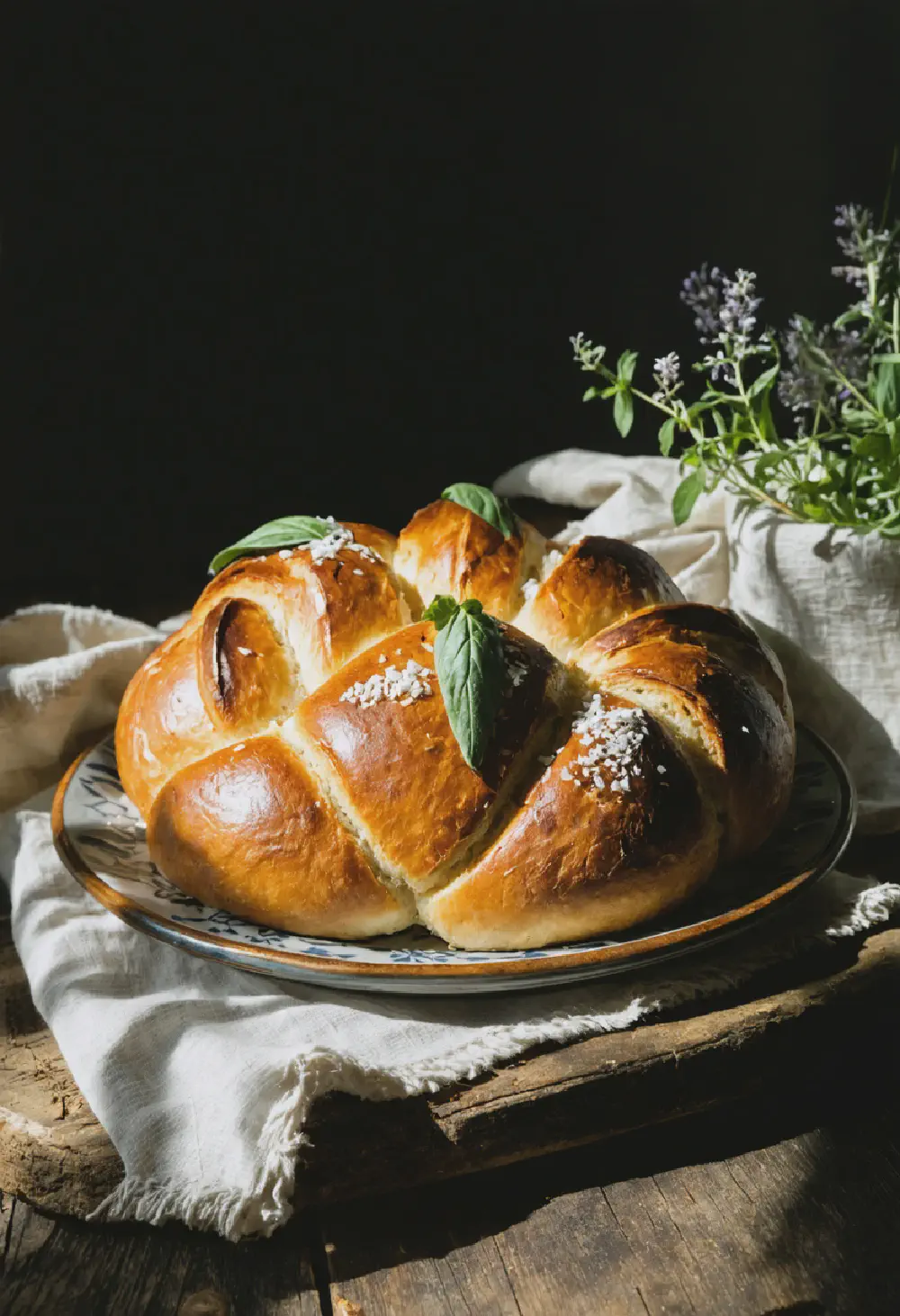Pollo alla Cacciatora
20M
1H and 20M
- Makes 4 servings
- 4 chicken thighs, bone-in and skin-on
- 4 chicken drumsticks, bone-in and skin-on
- Salt and freshly ground black pepper, to taste
- 2 tablespoons olive oil
- 1 large onion, finely chopped
- 2 cloves garlic, minced
- 1 red bell pepper, sliced
- 1 yellow bell pepper, sliced
- 8 ounces mushrooms, sliced
- 1/2 cup dry white wine
- 1 can (14.5 ounces) diced tomatoes
- 1 teaspoon dried oregano
- 1 teaspoon dried rosemary
- 1/2 cup chicken broth
- 2 tablespoons fresh parsley, chopped
- Season the chicken thighs and drumsticks generously with salt and pepper.
- Heat the olive oil in a large, deep skillet or Dutch oven over medium-high heat. Add the chicken pieces, skin side down, and cook until golden brown, about 5-7 minutes. Flip and cook the other side for another 5 minutes. Remove the chicken and set aside.
- In the same skillet, add the chopped onion and cook until softened, about 5 minutes. Add the garlic and cook for another minute.
- Add the sliced bell peppers and mushrooms to the skillet, cooking until they start to soften, about 5 minutes.
- Pour in the white wine, scraping up any browned bits from the bottom of the skillet. Let it simmer for 2 minutes.
- Stir in the diced tomatoes, oregano, rosemary, and chicken broth. Bring the mixture to a simmer.
- Return the chicken to the skillet, nestling it into the sauce. Cover and simmer on low heat for about 45 minutes, or until the chicken is cooked through and tender.
- Taste and adjust seasoning with salt and pepper if needed. Sprinkle with fresh parsley before serving.
Pollo alla Cacciatora: A Journey Through Its History, Taste, and Cultural Significance
History of Pollo alla Cacciatora
Pollo alla Cacciatora, or Hunter’s Chicken, is a dish deeply rooted in Italian culinary tradition. The name “Cacciatora” translates to “hunter” in Italian, reflecting its origins as a meal prepared by hunters. Historically, this dish was made with whatever ingredients were available, often including game birds, mushrooms, and herbs foraged from the wild. Over time, as the recipe evolved, chicken became the preferred protein, making Pollo alla Cacciatora a staple in Italian households. The dish’s rustic charm and adaptability have allowed it to remain a beloved part of Italian cuisine, showcasing the ingenuity and resourcefulness of traditional Italian cooking.
Taste Profile of Pollo alla Cacciatora
Pollo alla Cacciatora is celebrated for its rich and robust flavor profile. The dish typically features tender chicken braised in a savory tomato-based sauce, infused with aromatic herbs like rosemary and thyme. The addition of onions, garlic, and sometimes bell peppers adds depth and sweetness, while a splash of wine enhances the overall richness. The result is a hearty and comforting meal that balances the tanginess of tomatoes with the earthiness of herbs, creating a harmonious blend of flavors that is both satisfying and delicious. This taste profile makes Pollo alla Cacciatora a perfect dish for family dinners, offering warmth and comfort with every bite.
Cultural Significance of Pollo alla Cacciatora in Italian Cuisine
In Italian cuisine, Pollo alla Cacciatora holds a special place as a symbol of rustic, home-cooked meals. It embodies the essence of Italian cooking, which values simplicity, quality ingredients, and the joy of sharing food with loved ones. This dish is often prepared for family gatherings and special occasions, reflecting the importance of communal dining in Italian culture. Its versatility and regional variations also highlight the diversity of Italian culinary traditions, as different areas of Italy may add their own unique twists to the recipe. Pollo alla Cacciatora not only represents the heartiness and warmth of Italian home cooking but also serves as a testament to the country’s rich gastronomic heritage.




